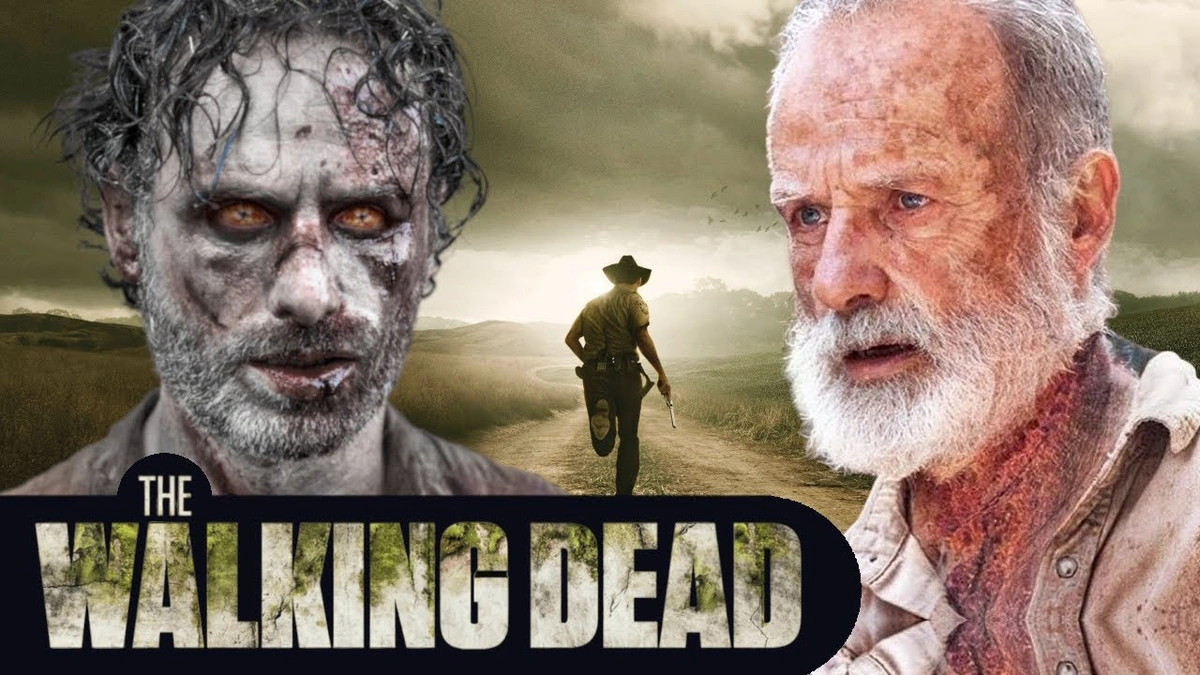The Walking Dead . It’s more than just a TV show; it’s a cultural phenomenon that clawed its way into our collective consciousness years ago. But with spin-offs galore and a sprawling universe, why are we still talking about walkers and survivors? What’s the secret to its enduring appeal?
Let’s be honest, there are plenty of zombie stories out there. But The Walking Dead did something different. It wasn’t just about the gore (though there was plenty of that, don’t worry). It tapped into something deeper – our anxieties about survival, community, and what it truly means to be human when everything falls apart. I think that’s part of why it maintains its popularity.
The Enduring Appeal | Beyond the Gore

Here’s the thing: the zombies aren’t really the point. They’re a catalyst. They force the characters (and us, the viewers) to confront difficult moral choices. It’s about watching ordinary people become extraordinary (or monstrous) in the face of unimaginable circumstances. What fascinates me is how it mirrors our own fears about societal collapse. We see how quickly order can dissolve and basic human instincts take over. I initially thought it was straightforward, but then I realized the writers subtly layer social commentary amidst all the zombie mayhem.
Consider the different communities that emerge throughout the series – Woodbury, Alexandria, The Saviors. Each represents a different approach to rebuilding society, with varying degrees of success (and ethical compromises). It’s a constant reminder that even in a post-apocalyptic world, the real monsters are often the living.
The Spin-Offs | Expanding the Universe (or Diluting the Story?)
And then came the spin-offs. Fear the Walking Dead , The Walking Dead: World Beyond , The Walking Dead: Dead City , and now, The Walking Dead: Daryl Dixon and The Walking Dead: The Ones Who Live . Each offers a different perspective on the same zombie-infested world. But do they add to the original story, or just dilute it? It’s a fair question.
Some argue that the spin-offs allow for deeper exploration of certain characters or themes. For example,Daryl’s journey in Franceprovides a unique cultural perspective on the apocalypse. Others feel that the constant expansion of the universe diminishes the impact of the original series. Maybe it’s a bit of both. What’s undeniable is that it keeps the franchise alive and kicking (pun intended!).
Character Development and the Emotional Investment
Let me rephrase that for clarity: One of the strongest aspects of The Walking Dead franchise is the character development. We watch Rick Grimes transform from a small-town sheriff to a hardened leader. We see Carol Peletier evolve from a timid housewife to a fierce warrior. These transformations aren’t always pretty, but they’re always compelling. It really shows that everyone has the potential to change. A common mistake I see new viewers make is judging characters too harshly based on their initial actions. The apocalypse changes people, and the show does a great job illustrating that.
And it’s not just the main characters. The supporting cast, from Glenn Rhee to Hershel Greene, played a crucial role in shaping the show’s emotional landscape. Their deaths (and there were many) were often heartbreaking, precisely because we had grown to care about them. The investment in these characters kept viewers coming back, even when the plot meandered. The writers did a phenomenal job of creating characters we rooted for (or loved to hate).
The Social Commentary | A Mirror to Our Own World
What fascinates me is the subtle social commentary woven throughout the series. The Walking Dead universe isn’t just about zombies; it’s about how people react to a crisis. It explores themes of leadership, power, and the fragility of civilization. We see how quickly societal norms can break down, and how easily people can resort to violence and brutality.
But it also shows the resilience of the human spirit. We see communities come together to rebuild, to create new systems of governance, and to find hope in the darkest of times. It’s a reminder that even in the face of unimaginable loss, there is always the potential for renewal. As per the guidelines mentioned in various film analysis publications, this constant tension between despair and hope is a key ingredient in the show’s appeal.
What’s Next for The Walking Dead?
So, what’s the future of The Walking Dead series ? With multiple spin-offs currently airing and more in development, it seems the franchise is here to stay. But can it maintain its relevance in an increasingly crowded entertainment landscape? Only time will tell.
One thing is certain: The Walking Dead has left an indelible mark on popular culture. It has redefined the zombie genre and sparked countless conversations about survival, morality, and the human condition. And that, more than anything else, is why we’re still talking about it.
But the real question isn’t just about zombies, it is about finding hope. It is seeing what is right when everything is wrong. Check outthis article for more on the horror genre.
FAQ | The Walking Dead Edition
What’s the best way to watch the walking dead in order?
Start with the original series, then follow the chronological order of the spin-offs as they were released.
Are all the walking dead spin offs worth watching?
That’s subjective! Some are better than others. It depends on your interest in specific characters or storylines.
Will there be more seasons of the walking dead?
The original series is over, but there are ongoing and planned spin-offs, expanding the walking dead universe .
How many seasons are there of the walking dead series?
There are 11 seasons of the original the walking dead series .
What is fear the walking dead about?
It’s a prequel series that shows the beginning of the zombie apocalypse from a different location and perspective.
Where can I stream the walking dead online?
It’s available on AMC+ and other streaming platforms.




